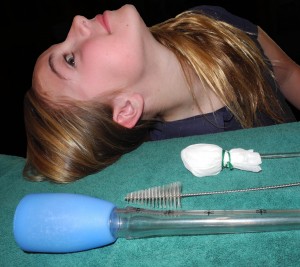Quietly the wind blows ever so gently against the leaves. A slight whisper tickles through my ears and fills me with a light and happy feeling. Birds chatter here and there as they dart across the sky from one branched cover to another.
I relish the soft sounds of nature and find myself listening intently to her calls bouncing through Newport’s Back Bay. I can even hear the lizards as they swizzle across the path and rustle through the native bush.
But soon the gentle stirrings are pierced by the loud presence of another kind. I hear a rumbling noise and soon above me a jet plane obscures part of the sun as its earsplitting engine bellows its supremacy against gravity, lifting it ever higher into the day sky.
It creates a muted backdrop as I watch a flight of terns lift off the water yet hear nothing, their zwreep-zwreep sound lost behind the Doppler waves booming by.
Though the deafening sounds of a jet engine are not very enjoyable, all sounds in general are wonderful because they make our beautifully colored, constantly moving world explode into life. Yet keeping our ears fit as a fiddle is usually not a priority, and off we go, forgetting the importance of this organ until a cold stuffs it up, an earache alerts us or hearing loss prompts a litany of “what?” from our mouth.
Eardrum vibrates, tiny ear bones resonate and nerve impulses race to the brain for the interpretation of the sound wave. And we hear.
Good hearing starts by keeping noise pollution at levels the ears can handle. Loud noises can harm hearing by damaging the sensitive, tiny hair cells in the inner ear. Once these hairs die, they never grow back and hearing loss occurs. These tiny hair cells are made more vulnerable under certain conditions such as aerobic exercise. Blood diverts away from our ears to our legs, arms and heart when exercising and makes the tiny hairs more vulnerable to noise.
It’s best to keep decibels at 60 or below for healthy hearing. Normal conversation resonates at 60 decibels, a vacuum cleaner at 90 and a jackhammer at 120.
Duration is another point. Constant exposures to 90 decibels or more can cause hearing loss. If you are frequently exposed to noise that makes it difficult to hear someone a couple of feet away speaking in a normal conversational voice, you are hovering in and around 90 decibels and that could be damaging.
And after very loud noise where high-pitched ringing is present in the ears, this temporary hearing loss can turn permanent if it happens two or more times a week.
 To help your ears keep their hearing, take breaks when listening to music through earbuds. An iPod at 60 decibels is safe for an hour a day. Another factor for ear health is the over-cleaning of the ears. Yes the yellow wax is unsightly, but using swabs deep inside the ear can cause wax to be pushed further inside, causing it to compact and get infected. Keep the swab only on the parts that are exposed, leaving the insides alone. Essential oils such as lavender, cajeput, tea tree, and thyme are all very effective for earaches–one drop of essential oil per teaspoon of olive oil. Garlic infused in olive oil is also a wonderful remedy that is antimicrobial and helps battle infections. Warm the oil mixture and place several drops in the ear. Also for good measure, rub the oil behind the ear where a bump protrudes (the mastoid bone), the place where the middle ear rests inside your head.
To help your ears keep their hearing, take breaks when listening to music through earbuds. An iPod at 60 decibels is safe for an hour a day. Another factor for ear health is the over-cleaning of the ears. Yes the yellow wax is unsightly, but using swabs deep inside the ear can cause wax to be pushed further inside, causing it to compact and get infected. Keep the swab only on the parts that are exposed, leaving the insides alone. Essential oils such as lavender, cajeput, tea tree, and thyme are all very effective for earaches–one drop of essential oil per teaspoon of olive oil. Garlic infused in olive oil is also a wonderful remedy that is antimicrobial and helps battle infections. Warm the oil mixture and place several drops in the ear. Also for good measure, rub the oil behind the ear where a bump protrudes (the mastoid bone), the place where the middle ear rests inside your head.
For overall health, always include vegetables and fruits in the diet. And cut down on fats, salt, sugar, alcohol, aspirin, caffeine, tobacco, and fried foods, since these foods raise cholesterol levels and high cholesterol can cause inner ear problems.
And with a little ginger, garlic turmeric and raw pineapple eaten throughout your weekly menu, you can help the immune system do its job of keeping a healthy body, and your ears unplugged for all the sounds that life can bring.




